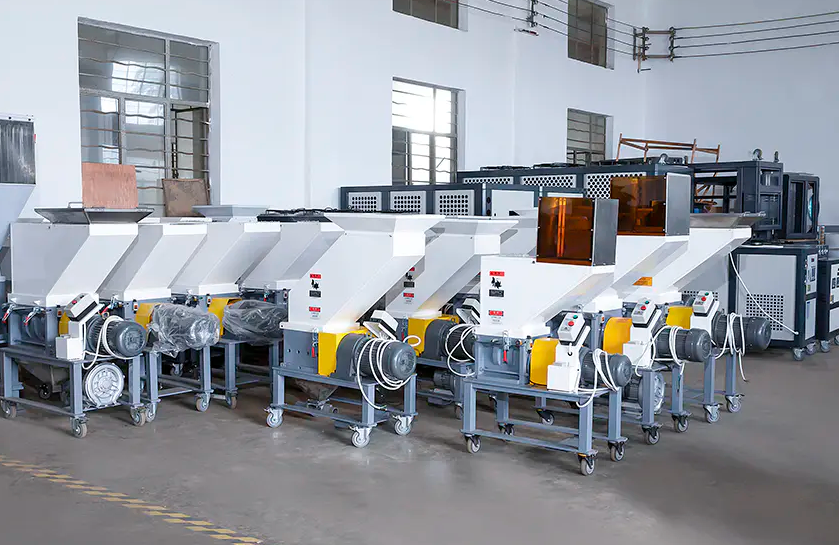Summary:Plastic granulators are revolutionizing the plastic industry by facilitating sustainable production and recycling practices. These versatile machines
Plastic granulators are revolutionizing the plastic industry by facilitating sustainable production and recycling practices. These versatile machines are pivotal in converting plastic waste and manufacturing remnants into reusable plastic pellets or granules. In this comprehensive exploration, we will delve into the multifaceted ways in which plastic granulators contribute to environmental sustainability and innovation in the plastics sector.
Plastic granulators serve as a beacon of hope in the battle against plastic waste. By expertly breaking down larger plastic items and manufacturing scraps into smaller, manageable pellets, they play a pivotal role in reducing the burden of plastic pollution in landfills and marine environments. This not only rejuvenates the visual appeal of our ecosystems but also mitigates the harmful impact of plastic waste on wildlife and human well-being.
Traditional plastic production consumes vast quantities of fossil fuels and natural resources. However, plastic granulators are changing the landscape by enabling efficient plastic recycling. This process minimizes the need for virgin materials, conserving precious resources and alleviating the environmental stress associated with resource extraction.
In a world striving to minimize energy consumption, plastic granulators are champions of energy efficiency. Recycling plastics through granulation consumes significantly less energy compared to producing new plastics from raw materials. This translates into a notable reduction in greenhouse gas emissions, aligning with global efforts to combat climate change.
Furthermore, the reduced energy requirements of plastic granulation contribute to cost savings, making it an economically viable option for businesses. This, in turn, bolsters corporate sustainability goals and responsible business practices.
Plastic granulators are also instrumental in streamlining recycling facilities' operations. They automate the process of breaking down plastics into granules, reducing both labor and time requirements. This operational efficiency enhances the cost-effectiveness of recycling programs, making them more accessible and sustainable.
The quality of recycled material is crucial, and plastic granulators deliver in this aspect. Granulated plastic pellets are often of superior quality compared to other forms of recycled plastic. This high-quality recycled material finds applications in diverse industries, broadening the market for recycled plastics and driving the demand for sustainable alternatives.
Closed-loop recycling systems are gaining traction in forward-thinking industries. Plastic granulators are integral to these systems, enabling companies to recycle waste generated within their operations. This approach reduces their dependence on external sources of virgin plastic, fostering self-sufficiency and sustainability.
Plastic granulators are fostering innovation in recycling technology and the development of circular economy practices. As recycling methods advance, a wider array of plastics can be reclaimed and reintegrated into the production cycle, reducing the industry's reliance on virgin materials.
The appeal of eco-friendly products is growing, and plastic granulators play a key role in meeting this demand. Products made from recycled plastics, made possible through granulation, are marketed as environmentally responsible. This resonates with eco-conscious consumers, driving the demand for sustainable products and encouraging manufacturers to adopt greener practices.
Regulatory bodies worldwide are imposing stricter regulations on plastic waste in response to mounting environmental concerns. Plastic granulators empower businesses to align with these regulations by facilitating efficient recycling and waste reduction strategies, ensuring compliance with environmental standards.














